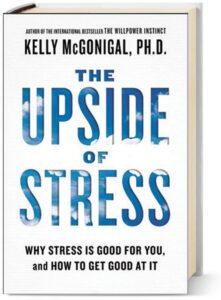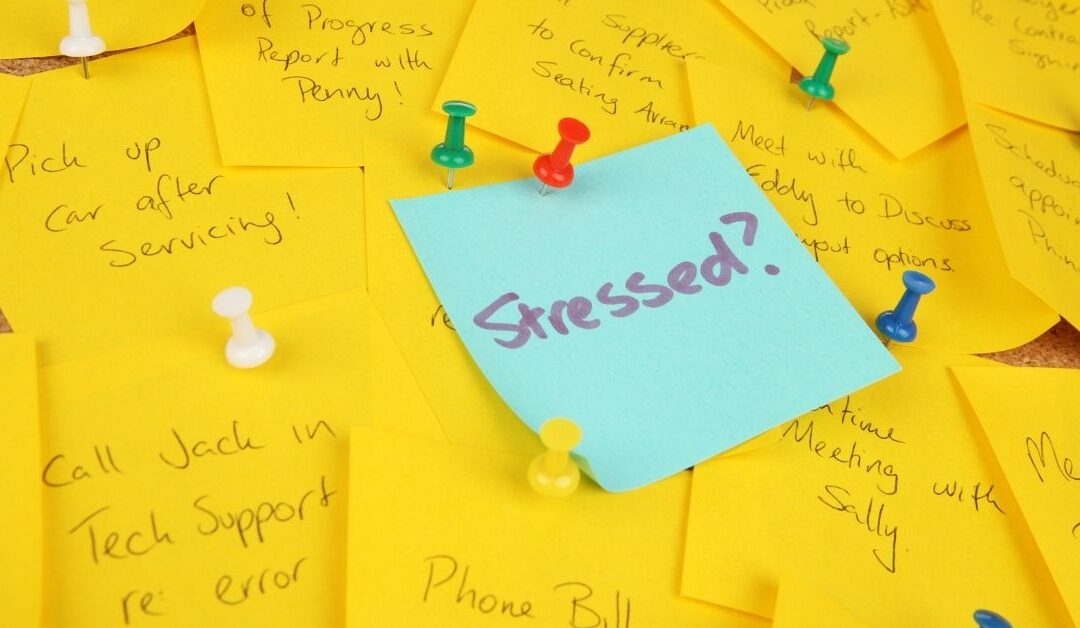The Book: “The Upside of Stress: Why Stress Is Good for You, and How to Get Good at It” (affiliate link)
Author: Kelly McGonigal, Ph.D.

What is it about:
When we think of stress, negative thoughts come to mind. We think of the health problems stress is causing. We think about how it hurts us mentally. But what if stress was actually a good thing? As parents of children with autism and ADHD, we are no stranger to high levels of stress. We are constantly being bombarded with stressors. Those include managing our child’s behavior, coordinating all their care, taking them to constant appointments, dealing with the school system, juggling their care with our jobs, and so much more. But what if stress could be good for us? What if we viewed it differently?
Dr. McGonigal challenges us to do that in “The Upside of Stress” (affiliate link). If we didn’t have stressful events in our lives, then we wouldn’t grow as people. I think that is true. When I look back over my life, my most significant growth has come out of stressful situations. If I didn’t have those, would I have grown in so many ways? Probably not. She notes the old saying, “what doesn’t kill you makes you stronger.” McGonigal shares research about how adversity really does help us grow stronger.
Another aspect of stress she discusses is anxiety. Does the anxiety you feel before a big presentation or a significant event negatively impact your performance, or can you use it to “rise to the challenge” to do better? McGonigal shares research that proves if you think about anxiety as your body and mind getting ready for something good, then it can help you perform better. For me, that is a mindset change that I can encourage in my son J. When he is nervous about taking a big test at school or performing a song in front of others, I can explain how that is helping him to prepare for it.
Another surprising topic (at least to me) that McGonigal share is how connecting and sharing our stressful situations with others helps us build resilience. I knew talking about a stressful situation helps me feel a bit calmer and work through it better. Yet, I had never thought about it helping me become more resilient. For those of us with autistic/ADHD children, it emphasizes the need for us to connect with others. That includes parents of autistic/ADHD children. We can help each other through the tough times. We can do that by joining local support groups and/or building friendships with other parents we have met along the way.
What I liked about this book:
I liked that McGonigal shared so many interesting examples and studies throughout the book. She didn’t share them in a dry way but did so as a storyteller. Her writing is engaging and keeps you interested in learning more. I also found her findings relevant to my own life. I like that she shared ways you can apply them to yourself. McGonigal provided some journaling and other exercises for the reader to do throughout the book.
Would I recommend this book?
Yes, I would highly recommend “The Upside of Stress” (affiliate link) I think it would be especially helpful for those who feel stressed much of the time and have a negative view of that stress. McGonigal discusses it’s how we view stress that can lead to the negative outcomes. However, if we can change our thoughts about stress, we may be able to avoid the health problems and other harmful results of feeling high stress in our lives. Who knows? You may grow more as a person too and allow stress to help you perform better in your life.
My rating: 4 out of 5 stars*
*(1 being the worst and 5 being the best)








